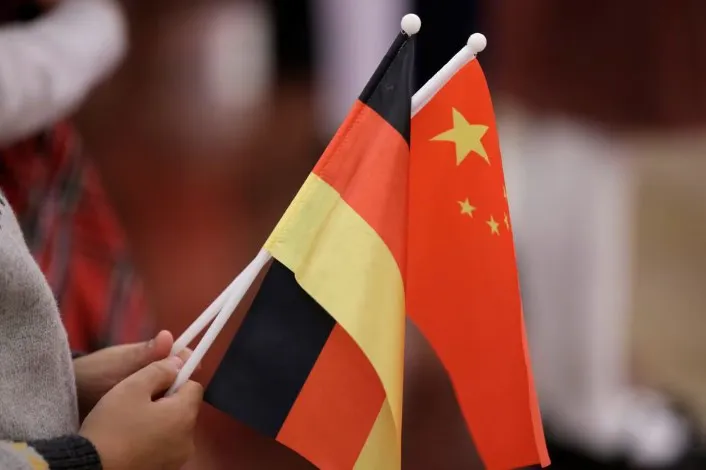Germany invented compass to guide its relations with China
It awakened the impression that Germany more "has to cooperate" than "would like to cooperate" with China and that Germany has more mistrust than confidence in China as a partner and competitor.
It is a novum in Germany's modern history but has been expected: Germany's first China strategy. It was published after more than one and half years of drafting and consultations with the German government, only several months after Germany's first National Security Strategy went public.
| A student holds flags of China and Germany before a welcome ceremony hosted by China's President Xi Jinping for German President Frank-Walter Steinmeier at the Great Hall of the People in Beijing, China, December 10, 2018. Photo: Jason Lee/Reuters |
In the wording of Germany's foreign minister Annalena Baerbock, it is the "compass" to guide Germany's relations with China in today and future world, and Germany has had to invent this compass because China "will assertively shape the course of this century". Only this is enough to indicate that Germany's present government decided to break with the China policy of the previous Angela Merkel administration.
In this strategic position paper, Germany considers China a partner, competitor, and system rival like the EU but unlike the US. These terms imply that Germany would like both to cooperate and compete with China and to confront China, only de-risking but not decoupling China, going along a tiny path between two aims that undermine each other. This policy shift is pragmatic, reasonable, and necessary for Germany but will not be easy to be successfully implemented when not hardly feasible.
This strategy reflects the lections Germany had drawn from its dependence on energy imports from Russia and the awareness that "China has changed," and China is trying to reduce its economic reliance on other countries while “making international production chains more dependent on China”. The document emphasized the importance of China to Germany but awakened the impression that Germany more "has to cooperate" than "would like to cooperate" with China and that Germany has more mistrust than confidence in China as a partner and competitor.
In many parts of this strategy, Germany listed problems and hurdles still existing in its bilateral relations with China, especially concerning the situation of democracy, humane rights, the rule of law, and fair economic competition in China. Unlike in the era before, Germany's present government takes much more tough stands and positions regarding China. Therefore, China can't be at ease with this German strategy.
Establishing and maintaining the fragile balance between de-risking and not-decoupling is now the main challenge for Germany in restructuring and reshaping its relations with China. It is a game Germany wants to play with China, but China doesn't. From the stand of Germany and EU, it is easy to understand why they always combine their interests with their values in their relations with China. But it is easy to understand, too, that this way of dealing with China will ultimately make the relations between them with China more and more complicated and sensitive for both them and China.









